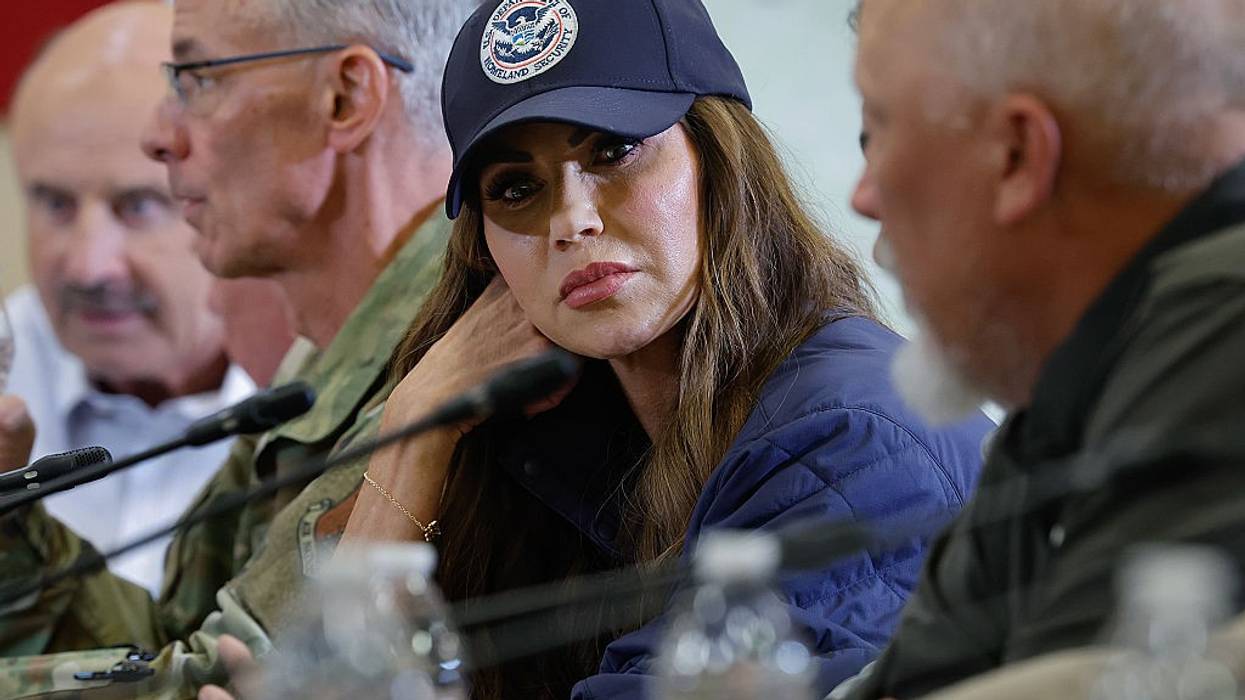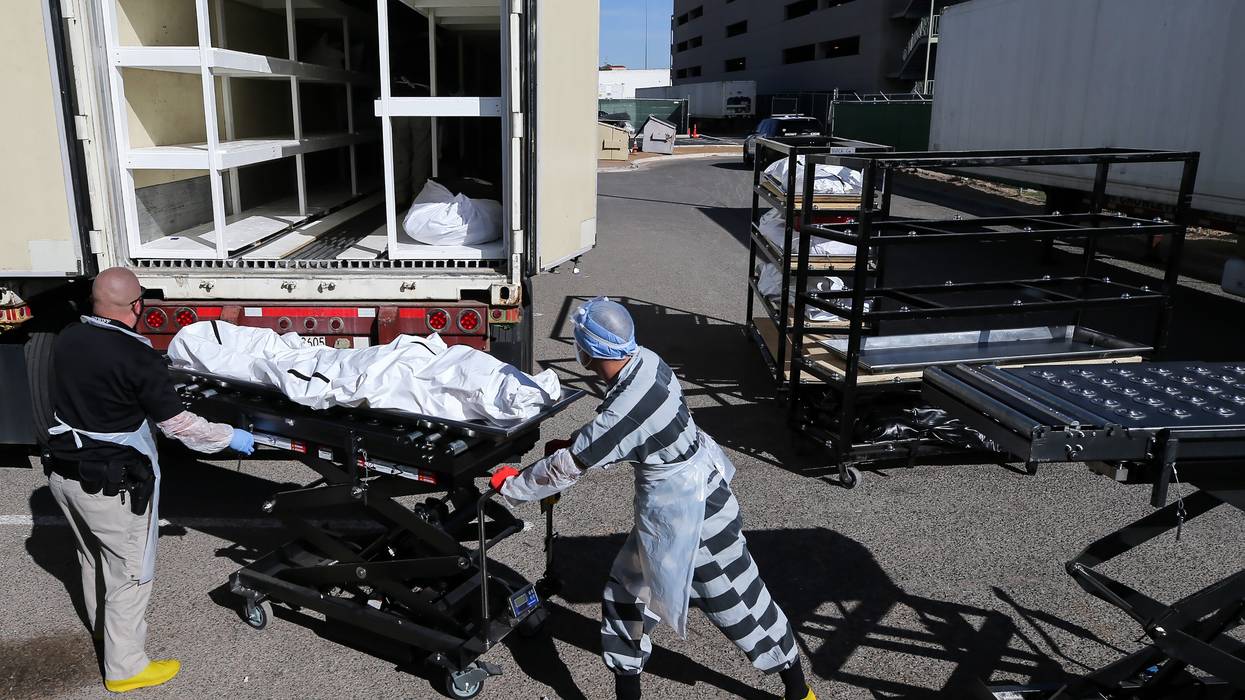"In all the cities we went to, we heard dozens of heartbreaking testimonies on how victims do not get justice or redress. This is not new, and it's unacceptable," Tracie Keesee, an expert member of the mechanism, said in a statement. "This is a systemic issue that calls for a systemic response."
"Law enforcement and criminal justice institutions in the United States share and reproduce values, attitudes, and stereotypes of U.S. society and institutions. These must be reformed."
The experts found that "racism in the U.S.—a legacy of slavery, the slave trade, and 100 years of legalized apartheid that followed slavery's abolition—continues to exist today in the form of racial profiling, police killings, and many other human rights violations."
The report cites instances of prisoners locked away in solitary confinement—widely recognized as a form of psychological torture—for a decade or longer, children sentenced to life in prison, and pregnant inmates chained during childbirth, "who due to the chaining, lost their babies."
"All these practices—including shackling pregnant women before, during, and after labor—are an affront to human dignity and the best interest of the child," the report states. "Instruments of restraint shall never be used on women during labor, during childbirth, and immediately after childbirth, in accordance with the U.N. Standard Minimum Rules for the Treatment of Prisoners," also known as the Nelson Mandela Rules.
The experts were "astonished" that forced unpaid or poorly paid convict labor "exists to this day in the United States, constituting a contemporary form of slavery." The 13th Amendment to the U.S. Constitution outlawed slavery and involuntary servitude, "except as punishment for crime," and congressional efforts to close the loophole have been unsuccessful.
The report notes:
The delegation received shocking information over "plantation-style" prisons in Southern states, in which contemporary forms of slavery are reported. Commonly known as "Angola," the Louisiana State Penitentiary occupies an 18,000-acre former slave plantation, larger than the island of Manhattan. The plantation prison soil worked by incarcerated labor today is the same soil worked by slaves before the Civil War. Angola currently houses nearly 5,000 adult men, the majority of them Black men, forced to labor in the fields (even picking cotton) under the watch of white "freemen" on horseback, in conditions very similar to those of 150 years ago. The mechanism received direct testimonies from Angola victims and allegations of children being transferred to this prison, held in solitary confinement, and in general under appalling detention conditions.
Earlier this month, a federal judge ordered Louisiana officials to stop imprisoning children on Angola's former death row by September 15.
Addressing the more than 1,000 people killed annually by U.S. law enforcement officers—only 1% of which result in the killer being criminally charged—the report warns that such killings will continue unless police use of force regulations are aligned with international standards.
"We reject the 'bad apple' theory," There is strong evidence suggesting that the abusive behavior of some individual police officers is part of a broader and menacing pattern," said mechanism expert member Juan Méndez. "Law enforcement and criminal justice institutions in the United States share and reproduce values, attitudes, and stereotypes of U.S. society and institutions. These must be reformed."
To that end, the report contains a lengthy list of over 30 recommendations, including:
- Fully implementing the United Nations High Commissioner for Human Rights' four-point agenda for transformative change for racial justice and equality;
- Tackling poverty and lack of quality education, employment opportunities, healthcare, adequate housing, and other human rights violations as a way to combat systemic racism;
- Adopting a human rights-based approach to policing and a national strategy—including legislation—to reduce killings by law enforcement;
- Eliminating all racial profiling;
- Creating an effective nationwide record system of individuals under investigation or found criminally or administrative guilty for police misconduct;
- Removing police from schools in favor of alternatives, including counselors, social workers, nurses, and mental health professionals;
- Adopting an immigration system with a human rights-based approach and addressing systemic racism within the ranks of immigration authorities;
- Ending the "War on Drugs" and adopting a human rights-based approach to drug policies, in part by decriminalizing low-level drug offenses;
- Reducing and strictly regulating militarized police and "no knock" entries;
- Abolishing the death penalty, "death by incarceration" sentencing, and the charging of children as adults;
- Exercising clemency powers in favor of condemned prisoners, people serving sentences beyond life expectancy, and those who were convicted for confessions under torture—especially children;
- Strictly regulating solitary confinement and other forms of restrictions in detention in accordance with international standards;
- Eliminating free or poorly paid prison labor; and
- Reducing former felon disenfranchisement.
"Our findings," said Méndez, "point to the critical need for comprehensive reform."




